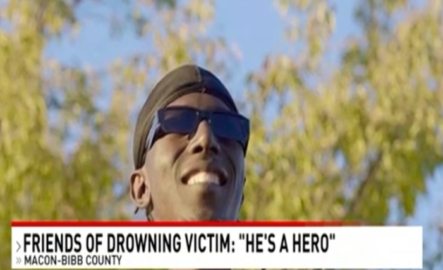In many eyes, Richard Pryor is the greatest and most influential stand-up comedian in history, helping pave the way for many greats including Eddie Murphy, Chris Rock and Dave Chappelle although he was also inspired by Bill Cosby.
Pryor, aside being a stand-up comic, was also an actor and writer, but life was always tough for the man who had an opinion on nearly every facet of life.
Born on December 1, 1940, in Peoria, Illinois to a mother, who reportedly worked as a prostitute and a bartender father, who served in the military during World War II, Pryor would fall under his grandmother’s care living in the brothel she ran as his parents divorced.
Pryor found solace in going to the movies early on as a form of escape from his depressing existence. But he soon found another escape was making people laugh, so he played the part of the class clown.
However, the man born Richard Franklin Lennox Thomas Pryor had quite the temper. At 14, he would be expelled from school. He then ended up working a string of jobs until he joined the military in 1958. He was discharged for fighting with another soldier ending his two-year stint with the army.
Aware he had no regular source of income, Pryor pursued a career as an entertainer finding work as a stand-up comic throughout the Midwest, playing African American clubs in such cities as East St. Louis and Pittsburgh.
By 1963, he was in New York City and in 1964; he made his television debut on the variety show On Broadway Tonight. Guest appearances followed on such programs as The Merv Griffin Show and The Ed Sullivan Show. At the time, his act was modeled after two African-American comedians he admired, Bill Cosby and Dick Gregory.
Things began looking up and by the late 1960s, Pryor had landed a few small parts on the big screen, appearing in The Busy Body (1967) and Wild in the Streets (1968). He also released his first self-titled comedy album around this time.
In the early 1970s, Pryor had the good fortune of excelling as an actor and comedian. He earned positive reviews for his supporting role in the Billie Holiday biopic Lady Sings the Blues (1972), starring Diana Ross.
On the comic front, Pryor was playing to both white and black audiences with his material consisting of situational and character-driven humor in place of straightforward jokes.
On the film front, by the late 1970s, Pryor starred in the box office hit Silver Streak (1976), with Gene Wilder and Jill Clayburgh. He also played the first African-American stock car racing champion in Greased Lightning (1977), with Beau Bridges and Pam Grier.
In 1983, Pryor became one of the highest-paid African American actors at the time, taking home $4 million to play an evil henchman in Superman III — reportedly earning more than the film’s star, Christopher Reeve.
For his many offerings as an entertainer, Pryor became the first person to receive the Mark Twain Prize for American Humor from the Kennedy Center in 1998.
Pryor also won an Emmy Award (1973) and five Grammy Awards (1974, 1975, 1976, 1981, and 1982). In 1974, he also won two American Academy of Humor awards and the Writers Guild of America Award. He was listed at number one on Comedy Central’s list of all-time greatest stand-up comedians while Rolling Stone ranked him first on its list of the 50 best stand-up comics of all time in 2017.

Pryor was married seven times to five women sometimes divorcing and remarrying the women. He had seven children with six different women.
While he found success as an entertainer, Pryor also battled his demons. In 1978, he was arrested for drunk driving, for which he was sentenced to five months in jail.
On June 9, 1980, Pryor poured 151-proof rum all over himself and lit himself on fire. He was taken to a hospital, where he was treated for second- and third-degree burns covering more than half of his body. He spent six weeks in recovery at the Grossman Burn Center at Sherman Oaks Hospital. His daughter Rain stated that the incident happened as a result of a bout of drug-induced psychosis.
Pryor got addicted to freebasing cocaine. In November 1977, after many years of heavy smoking and drinking, he suffered a mild heart attack aged 37. He recovered and resumed performing in January the following year. In 1986, he was diagnosed with multiple sclerosis.
On December 10, 2005, nine days after his 65th birthday, Pryor suffered a third heart attack in Los Angeles. He was taken to a local hospital after his wife’s attempts to resuscitate him failed. He was pronounced dead. Thus ending the time of a groundbreaking African-American comedian and one of the top entertainers of the 1970s and 1980s.










